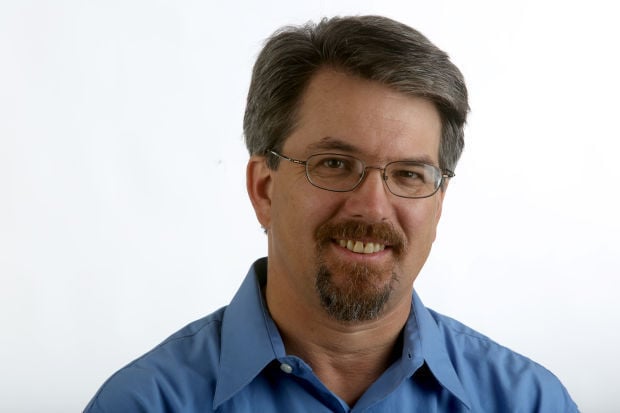How do you pronounce Tanque Verde?
It’s one of those bellwether phrases that says a lot about whether you’re from Southern Arizona or elsewhere, and whether you grew up speaking English or Spanish — or both. Same with Casa Grande.
For me, arriving in Tucson as a Spanish speaker in 1997, I found it hilarious to hear people pronounce it “TANK-a VUR-dee.” Now I usually say it that way.
It’s one of those little examples that highlight our history and evolving linguistic reality. Multilingualism is on the march in Tucson and America, but localism is, too, and rigidity about language shouldn’t thwart either one.
These topics emerged last week for a variety of reasons involving national political candidates as well as a Tucson court conflict. Another took place in Phoenix, where a new TV anchorwoman, Vanessa Ruiz, found it necessary to explain on a newscast why she pronounces some words with a Spanish-language accent.
Ruiz does English-language broadcasts on KPNX Channel 12, but she grew up in Colombia and is thoroughly bilingual. Some viewers complained because while speaking in English, she likes to pronounce Spanish words with what she considers a proper, Spanish-language accent.
One word, apparently, is Mesa, which she pronounces “MESS-uh” as opposed to the common Anglo pronunciation, “MAY-suh.” It’s a small distinction that apparently made a big difference for some viewers.
Unfortunately, when she explained herself on TV Monday, Ruiz said, “I do like to pronounce certain things the way they were meant to be pronounced.”
That’s where I differ from her. While Ruiz was lauded nationwide for her willingness to uphold her heritage and pronounce Spanish words correctly, I found her pronouncement presumptuous. If the people of Mesa pronounce it “MAY-suh,” who is this newcomer to correct them?
But of course the issue is not just one of MAY-suh vs. MESS-uh, or TANK-a VUR-dee vs. TAHN-kay VAIR-day. It’s about the evolving American reality.
Donald Trump made this clear last week when he criticized fellow Republican presidential candidate Jeb Bush for speaking Spanish on the stump. Bush answered a Spanish-language TV network’s reporter in Spanish and sharply criticized Trump.
In response, Trump said: “I like Jeb. He’s a nice man. But he should really set the example by speaking English when he’s in the United States.”
That phrasing is interesting — what on Earth did Trump mean by “set the example”? Is monolingualism really an example to be set? Is bilingualism a bad thing?
It is, it seems, in the minds of a good swath in the USA. Distrust of people speaking other languages comes naturally to some.
Such is the case, it appears, with Terri Bennett. She’s the former Pima Community College nursing student who was bothered by other students speaking Spanish in her classes. (See related story on Page C1.) Her story won the attention of a group called ProEnglish, which advocates for laws making English the official language.
They underwrote a lawsuit on Bennett’s behalf, led by Tucson attorney John Munger, that argued the students speaking Spanish around her disrupted her studies and violated the “contract” between her and the college. Bennett was taking classes at PCC’s Desert Vista campus, where many students speak Spanish.
PCC argued that Bennett was the one who caused friction in the class, in part by antagonizing the Spanish-speaking students. The eight-member Pima County jury agreed with PCC on Aug. 24, finding unanimously against her. And no, this was not an all-Latino jury, if the surnames are indicative: Only two of the eight jurors’ surnames were Hispanic.
Since we passed a constitutional amendment in 2006, all government business must be conducted in English in Arizona. But especially in this region, we should embrace multilingualism, not fight it. The Tucson Hispanic Chamber of Commerce reported last week, citing Nielsen, that 72 percent of Hispanic TV viewers in the Tucson area are bilingual.
“I think people need to see it as advantage,” chamber President Lea Marquez Peterson told me Friday. “We live in a bilingual and bicultural community.”
In Tucson, too, some TV viewers have complained about words pronounced with too much of a Spanish-language accent, legendary local TV reporter Lupita Murillo told me Friday. Murillo grew up in South Texas and learned both languages as a child.
At her grandmother’s ranch, Murillo told me, “She said en español: ‘When you are with your friends, speak English, when you are here, you speak Spanish. Don’t ever forget that.’ “
Murillo prefers to pronounce words like “marijuana” and “Casa Grande” — and of course her own name — with a Spanish accent.
“I get a lot more people coming up to me and saying ‘I appreciate you pronouncing the names correctly’ than I have people complaining,” said Murillo, of KVOA Channel 4.
While I largely agree with her point, that word “correctly” caught me a bit. I’m the guy who used to say Casa Grande the Spanish way. Now I say “KASS-uh Grand” in English. (Of course, in Spanish I say it the Spanish-accented way, as I do Tanque Verde.)
Why? Well, I feel that when I speak in English, I should pronounce things the Anglo-American way, and I also enjoy the local versions of Spanish words. When I speak Spanish, I do my best with full-on Spanish accents.
In the end, whether speaking multiple languages or just one, it’s not about what’s correct. It’s about communication.





